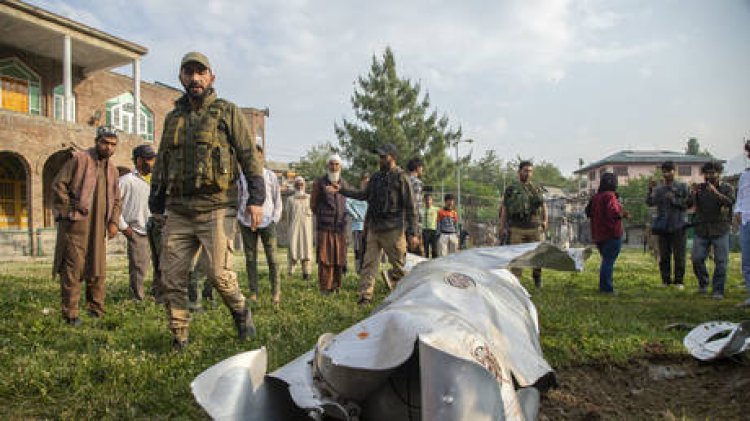Military tensions escalate between India and Pakistan: the latest updates
New Delhi has targeted what it refers to as terrorist positions within the territory of its neighboring state in reaction to a recent deadly terrorist act. The Indian military has conducted a series of strikes against targets in Pakistan and...

The Indian military has conducted a series of strikes against targets in Pakistan and the Pakistan-administered Kashmir region. This military action follows a fatal terrorist attack in the Indian Union Territory of Jammu and Kashmir two weeks prior, according to the nation’s Defense Ministry.
Pakistan termed the operation an instance of “unprovoked aggression” and responded with its own shelling, as reported by the Indian ministry. Islamabad indicated that it retains the right to respond to India's actions as it sees fit.
### Operation Sindoor Launched
On Wednesday, India announced the execution of strikes on nine “terrorist camps” in Pakistan and the Pakistan-administered Kashmir region, designating it ‘Operation Sindoor.’ New Delhi characterized the assault as “focused, measured and non-escalatory.” Officials from India stated that neither Pakistan’s military nor its civilian population were targets during the operation.
### Initial Response from Pakistan
According to Lt. Gen. Ahmed Sharif Chaudhry, spokesperson for Pakistan’s military, the Indian attacks resulted in the deaths of at least 26 civilians and left 46 others injured. Pakistani Defense Minister Khawaja Asif remarked to GeoTV that the strikes impacted civilian areas, including a mosque, and described the strikes as “unprovoked and illegal aggression.”
Prime Minister Shehbaz Sharif asserted that Islamabad “has every right to respond forcefully to this act of war.” Following this, the Indian military reported that Pakistani shelling in Jammu and Kashmir resulted in 15 civilian deaths and 43 injuries.
### Threats of Further Escalation
Pakistan’s National Security Committee stated that it “reserves the right to respond in time, place, and manner of its choosing” after an emergency meeting led by Sharif. Reports from local media indicated that the government granted the military a “free hand” to retaliate against India.
In response, New Delhi warned that it would retaliate if Islamabad took military action. Officials from India conveyed to more than a dozen foreign envoys that “If Pakistan responds, India will respond.”
### International Response
Russia called for restraint from both nations and urged de-escalation. The Russian Foreign Ministry expressed hope that India and Pakistan would resolve their differences “through peaceful political and diplomatic means,” while also “decisively condemn[ing] all acts of terrorism.”
Iran and Bangladesh expressed serious concern over the escalating situation and urged both sides to exercise restraint. The UK also encouraged New Delhi and Islamabad to pursue a “swift, diplomatic path forward.”
### Origins of the Escalation
India's military action was a direct response to a terrorist attack on tourists in Pahalgam, Kashmir, two weeks earlier, which resulted in 26 fatalities. The attack was initially claimed by ‘The Resistance Front,’ a group suspected to have links with the Pakistan-based Lashkar-e-Taiba. New Delhi asserted that its investigators identified the attackers’ planners and supporters, as well as communication nodes utilized by the terrorists in connection with Pakistan.
Islamabad has strongly denied any involvement in the incident and called for an impartial investigation. The attack has already inflamed tensions, leading to various rounds of non-military escalations between the two nuclear-armed nations over recent weeks. Since gaining independence from the UK in 1947, India and Pakistan have engaged in four wars.
Emily Johnson for TROIB News












